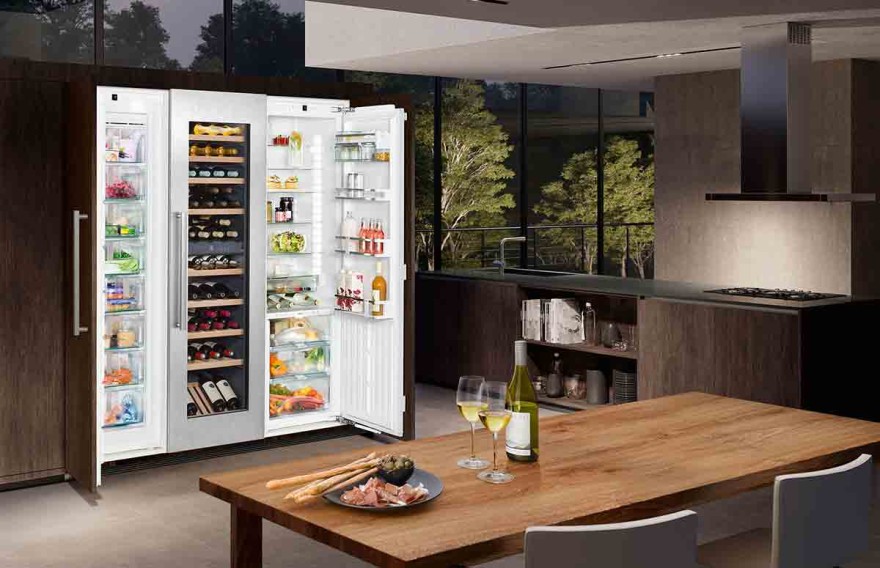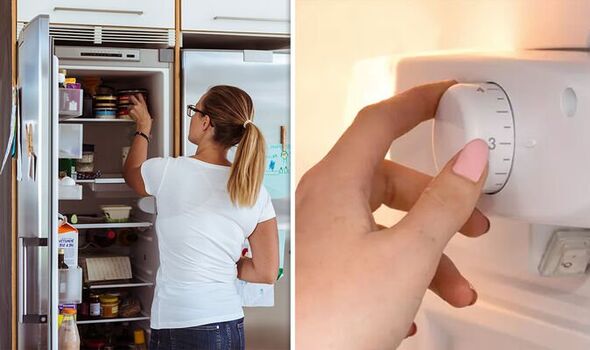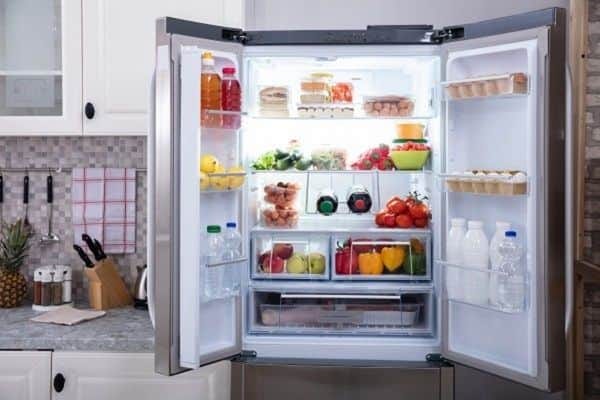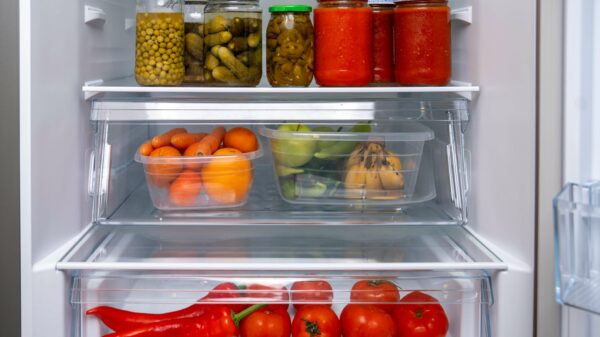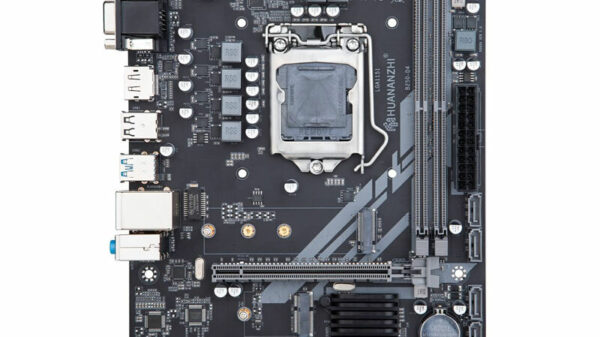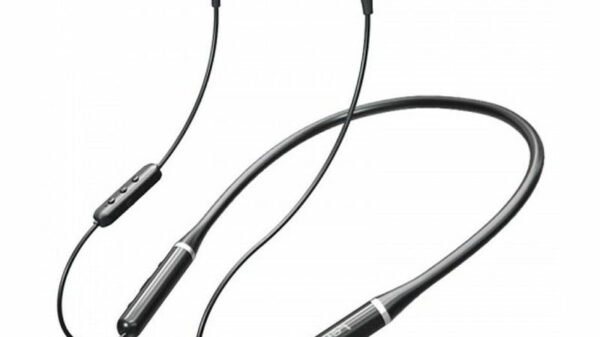Ah, the trusty refrigerator – a constant companion in every kitchen, keeping our food fresh and our drinks cold. But did you know that your fridge is one of the biggest energy consumers in your home? With rising energy costs and environmental concerns, optimizing your refrigerator’s energy consumption is crucial. In this article, we’ll explore practical and easy-to-implement tips for making your fridge more energy-efficient without compromising on its cooling performance.
1. Find the Perfect Spot
Location Matters
Choosing the right location for your refrigerator can impact its energy efficiency. Keep it away from heat sources like ovens and direct sunlight. The cooler the surrounding environment, the less work your fridge’s compressor needs to do to maintain its temperature.
Allow for Adequate Airflow
Make sure there’s enough space around the fridge for proper airflow. Crowding it against the wall or squeezing it between cabinets can restrict ventilation, leading to increased energy consumption.
2. Set the Right Temperature
The Goldilocks Zone
The ideal refrigerator temperature is between 35°F and 38°F (1.6°C and 3.3°C), while the freezer should be set to 0°F (-18°C). Lowering the temperature unnecessarily puts extra strain on the compressor, driving up energy usage.
Avoid Frequent Temperature Changes
Opening the refrigerator door frequently can cause temperature fluctuations, requiring the fridge to work harder to regain the set temperature. Limiting door openings can save energy and keep your food fresh.
3. Check the Door Seals
 The Art of the Tight Seal
The Art of the Tight Seal
Ensure that the door seals are in good condition and free from debris. A loose or damaged seal can allow warm air to enter the refrigerator, forcing it to work harder to maintain the desired temperature.
Perform the Dollar Bill Test
To check the effectiveness of your door seals, place a dollar bill between the seal and the door frame and close the door. If you can easily pull the bill out, it’s time to replace the seals.
4. Keep it Stocked but Not Overloaded
The Right Balance
A well-stocked refrigerator tends to maintain its temperature more efficiently than an empty one. However, avoid overloading it, as it can obstruct airflow and reduce cooling efficiency.
Organize for Convenience
Organize your fridge with frequently used items within easy reach. This reduces the time the door stays open and helps maintain a consistent temperature.
5. Clean the Condenser Coils
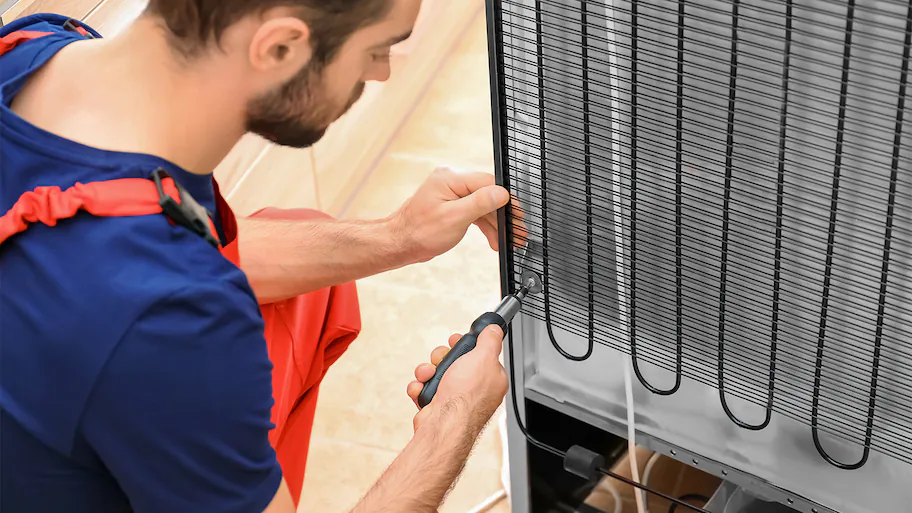 Dusty Dilemmas
Dusty Dilemmas
Dusty condenser coils are a common culprit of energy inefficiency. Over time, dust and dirt accumulate on the coils, making it harder for the refrigerator to dissipate heat.
Regular Maintenance
Clean the condenser coils at least twice a year to ensure optimal cooling performance. Use a coil brush or vacuum cleaner to gently remove the debris.
6. Be Mindful of the Energy-Saving Feature
Vacation Mode
If you’re going away for an extended period, use the vacation mode or turn off the ice maker to reduce energy consumption.
Economy Mode
Some refrigerators come with an economy mode that reduces energy usage during off-peak hours. Utilize this feature if available.
7. Consider Upgrading to an Energy-Efficient Model
The Future of Cooling
If your refrigerator is more than ten years old, it might be time to consider an upgrade. Newer models are built with advanced technologies and improved insulation, resulting in significant energy savings.
8. Opt for LED Lighting
Shedding Light on Energy Savings
LED lighting is not only more energy-efficient but also generates less heat compared to traditional incandescent bulbs. LED lights last longer and contribute to overall energy savings.
9. Choose the Right Size
Finding the Right Fit
Select a refrigerator size that suits your needs without being too large. A larger fridge requires more energy to cool and maintain, even if you don’t utilize all the space.
Consider a Compact Fridge
If you need an additional refrigerator for beverages or as a backup, consider investing in a compact fridge. They are smaller, energy-efficient, and perfect for limited space.
10. Regularly Defrost Your Freezer
Ice-Free is Energy-Efficient
Frost buildup in the freezer makes it work harder to cool, increasing energy consumption. Regularly defrosting your freezer helps maintain optimal cooling efficiency.
By implementing these energy-efficient cooling tips, you can reduce your refrigerator’s energy consumption while still enjoying the benefits of fresh food and chilled drinks. Remember, small changes can make a significant impact on your energy bill and the environment. If you’re looking for high-quality, energy-efficient refrigerators, Pickaboo has a wide range of options to suit your needs. Contact them today to find the perfect cooling solution for your kitchen.
**FAQs**
- Q: How much can I save by optimizing my refrigerator’s energy consumption?
A: By implementing energy-efficient practices, you can save up to 15% on your refrigerator’s energy consumption.
- Q: Can I place my refrigerator in the garage?
A: While it’s possible, extreme temperatures in the garage can impact the fridge’s performance. Consider a garage kit or opt for an energy-efficient model if you plan to do so.
- Q: Should I unplug my refrigerator when not in use?
A: It’s not necessary to unplug your refrigerator regularly. The defrost cycle and temperature control require a continuous power supply. However, consider unplugging it during extended vacations or power outages.
- Q: Is it better to keep my refrigerator always running or turn it off when not in use?
A: It’s better to keep your refrigerator running continuously for food safety and optimal cooling. Modern refrigerators are designed to be energy-efficient, so turning them off and on frequently can actually consume more energy.
- Q:Can I use my refrigerator’s freezer to store non-food items?
A: Using the freezer to store non-food items like batteries or electronics can affect the freezer’s cooling efficiency. It’s best to reserve the freezer space for food items only.
- Q: Does the position of the refrigerator’s freezer affect energy consumption?
A: The position of the freezer, whether on top or bottom, doesn’t significantly affect energy consumption. The key is to ensure proper temperature settings and regular maintenance.
- Q: Is it normal for my refrigerator to make noise?
A: Yes, some humming or buzzing sounds are normal during the refrigerator’s operation. However, loud or unusual noises could indicate a problem that needs attention.
- Q: How often should I clean the interior of my refrigerator?
A: Clean the interior of your refrigerator every month to prevent food odors and maintain a clean environment.
- Q: Can I use a fridge thermometer to monitor the temperature?
A: Yes, a fridge thermometer helps you ensure that the refrigerator is maintaining the correct temperature range for food safety.
- Q:How long do refrigerators typically last?
A:The average lifespan of a refrigerator is around 10-15 years with proper maintenance and care.

